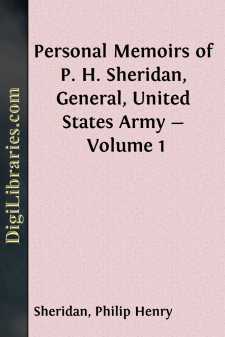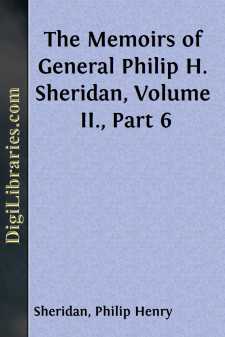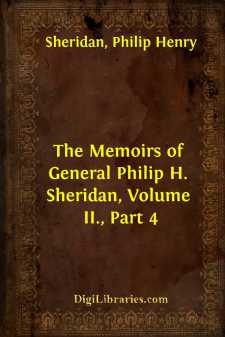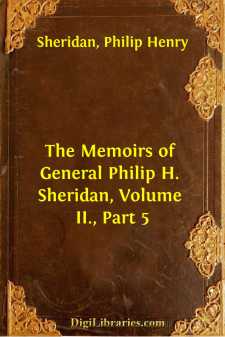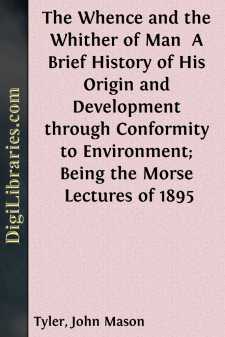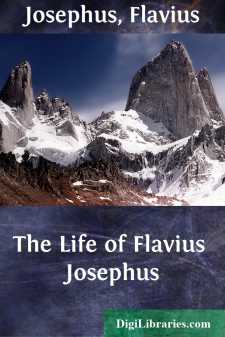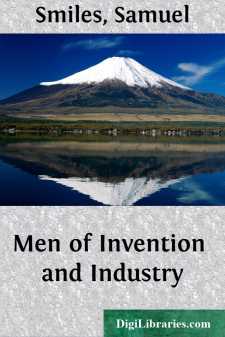Categories
- Antiques & Collectibles 13
- Architecture 36
- Art 48
- Bibles 22
- Biography & Autobiography 813
- Body, Mind & Spirit 142
- Business & Economics 28
- Children's Books 17
- Children's Fiction 14
- Computers 4
- Cooking 94
- Crafts & Hobbies 4
- Drama 346
- Education 46
- Family & Relationships 57
- Fiction 11829
- Games 19
- Gardening 17
- Health & Fitness 34
- History 1377
- House & Home 1
- Humor 147
- Juvenile Fiction 1873
- Juvenile Nonfiction 202
- Language Arts & Disciplines 88
- Law 16
- Literary Collections 686
- Literary Criticism 179
- Mathematics 13
- Medical 41
- Music 40
- Nature 179
- Non-Classifiable 1768
- Performing Arts 7
- Periodicals 1453
- Philosophy 64
- Photography 2
- Poetry 896
- Political Science 203
- Psychology 42
- Reference 154
- Religion 513
- Science 126
- Self-Help 84
- Social Science 81
- Sports & Recreation 34
- Study Aids 3
- Technology & Engineering 59
- Transportation 23
- Travel 463
- True Crime 29
The Memoirs of General Philip H. Sheridan, Volume I., Part 1
Categories:
Description:
Excerpt
ANCESTRY—BIRTH—EARLY EDUCATION—A CLERK IN A GROCERY STORE—APPOINTMENT—MONROE SHOES—JOURNEY TO WEST POINT—HAZING—A FISTICUFF BATTLE—SUSPENDED—RETURNS TO CLERKSHIP—GRADUATION.
My parents, John and Mary Sheridan, came to America in 1830, having been induced by the representations of my father's uncle, Thomas Gainor, then living in Albany, N. Y., to try their fortunes in the New World: They were born and reared in the County Cavan, Ireland, where from early manhood my father had tilled a leasehold on the estate of Cherrymoult; and the sale of this leasehold provided him with means to seek a new home across the sea. My parents were blood relations—cousins in the second degree—my mother, whose maiden name was Minor, having descended from a collateral branch of my father's family. Before leaving Ireland they had two children, and on the 6th of March, 1831, the year after their arrival in this country, I was born, in Albany, N. Y., the third child in a family which eventually increased to six—four boys and two girls.
The prospects for gaining a livelihood in Albany did not meet the expectations which my parents had been led to entertain, so in 1832 they removed to the West, to establish themselves in the village of Somerset, in Perry County, Ohio, which section, in the earliest days of the State; had been colonized from Pennsylvania and Maryland. At this period the great public works of the Northwest—the canals and macadamized roads, a result of clamor for internal improvements—were in course of construction, and my father turned his attention to them, believing that they offered opportunities for a successful occupation. Encouraged by a civil engineer named Bassett, who had taken a fancy to him, he put in bids for a small contract on the Cumberland Road, known as the "National Road," which was then being extended west from the Ohio River. A little success in this first enterprise led him to take up contracting as a business, which he followed on various canals and macadamized roads then building in different parts of the State of Ohio, with some good fortune for awhile, but in 1853 what little means he had saved were swallowed up —in bankruptcy, caused by the failure of the Sciota and Hocking Valley Railroad Company, for which he was fulfilling a contract at the time, and this disaster left him finally only a small farm, just outside the village of Somerset, where he dwelt until his death in 1875.
My father's occupation kept him away from home much of the time during my boyhood, and as a consequence I grew up under the sole guidance and training of my mother, whose excellent common sense and clear discernment in every way fitted her for such maternal duties. When old enough I was sent to the village school, which was taught by an old-time Irish "master"—one of those itinerant dominies of the early frontier—who, holding that to spare the rod was to spoil the child, if unable to detect the real culprit when any offense had been committed, would consistently apply the switch to the whole school without discrimination. It must be conceded that by this means he never failed to catch the guilty mischief-maker. The school-year was divided into terms of three months, the teacher being paid in each term a certain sum—three dollars, I think, for each pupil-and having an additional perquisite in the privilege of boarding around at his option in the different families to which his scholars belonged....




